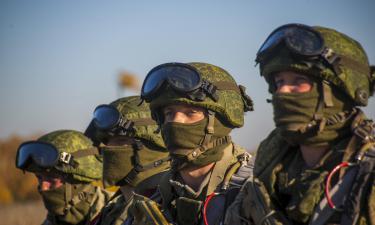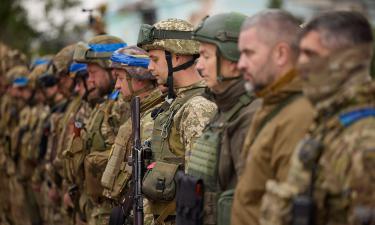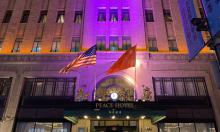Orthodox Greece honors 'ice breaker' pope
Greek religious and political leaders - historically wary of the Vatican - praised Pope John Paul II Wednesday for his efforts to ease centuries-old divisions with the Orthodox Church.
"The pope with courage and determination defended peace, human rights and universal human values," Prime Minister Costas Caramanlis wrote in a book of condolences at the Vatican's embassy in Greece.
John Paul, who will be buried Friday, visited Greece in 2001, the first pope to do so in nearly 1,300 years. He was described as an "ice breaker" in the Greek media.
President Karolos Papoulias will represent Greece at the funeral and he will be joined by a high-level delegation from Greece's Orthodox Church.
The pope "will be remembered for his important initiative. He was a flag-bearer of human rights," a Greek Church statement said. "His long tenure was characterized by his efforts toward peace and his help for the peoples of the Third World."
Greek spiritual leader Archbishop Christodoulos will head the church delegation, which includes three metropolitan bishops - a decision criticized by several members of the church's governing Holy Synod.
Many clergy in overwhelmingly Orthodox Greece see themselves as the caretakers of "true" Christianity and view the Vatican with suspicion. They also accuse the Catholic church of trying to extend its influence eastward.
The Orthodox split with the Vatican nearly 1,000 years ago in a dispute over papal authority and have accused the Vatican of perceived injustices dating as far back as the 1204 sacking of Constantinople by crusaders. The city, now Istanbul, was then the seat of the Orthodox Byzantine empire.
While in Athens four years ago, John Paul issued a landmark apology for Roman Catholic wrongs against Orthodox Christians. He made repeated gestures of goodwill toward Eastern Christian Churches in the later years of his papacy.
"He will be remembered as the man who peacefully brought Communism to its knees ... who believed in the union of the churches and cooperation between monotheistic religions: a believer in the coexistence - not the clash - of civilizations," commentator Richardos Someritis wrote in the Athens daily To Vima.
The Polish-born Pope visited six predominantly orthodox countries, starting with a trip to Romania in 1999. The Vatican also returned to Orthodox hands an important icon and the relics of two Orthodox saints.
Ecumenical Patriarch Bartholomew I, based in Istanbul and spiritual leader of the world's 300 million Orthodox Christians, will also attend Friday's funeral.
"From the beginning of his pontificate, John Paul II attempted to continue the efforts of Paul VI to heal the thousand-year division between the Orthodox and Catholic churches," Robin Darling Young, Associate Professor at the theology department of Indiana's University of Notre Dame's Department, told The Associated Press.
"As a native of Eastern Europe ... he was long aware of the tensions and strife between Catholic Poland and Orthodox Russia, as well as the shared Christian traditions of the Slavic East," she said.
"He pursued friendship with Orthodox ecclesiastical leaders through the quiet route of Vatican diplomacy and also through highly publicized personal visits to Orthodox countries."
The Orthodox Church represents about 97 percent of the country's 11 million native-born population. Greece's tiny Catholic minority numbers about 50,000, while more than 100,000 Catholic immigrants live here.
DEREK GATOPOULOS, Associated Press Writer
Subscribe to Pravda.Ru Telegram channel, Facebook, RSS!





